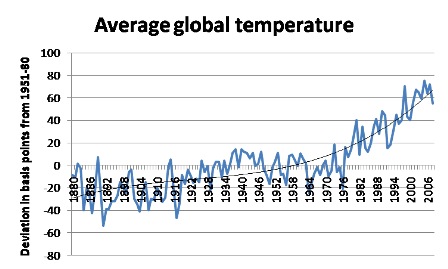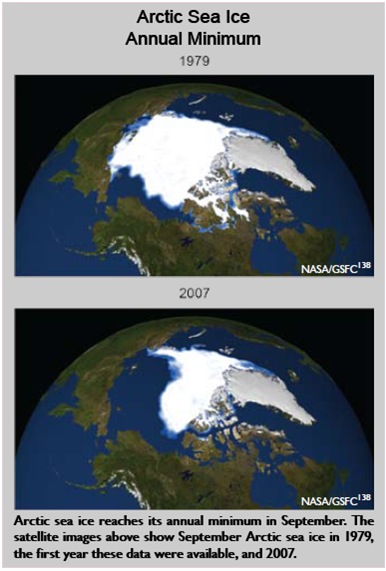It’s a little hard to follow the news from Iran these days, let alone figure out what it all means. One way to do it is to follow Juan Cole’s reporting and commentary. Here’s this morning’s installment; you could do worse than subscribe to his blog.
Day of Mourning, Protests, Called by Mousavi on Thursday
Mir-Hosain Mousavi, who maintains he won last Friday’s presidential election despite official assertions that he lost 2 to 1 to Mahmoud Ahmadinejad, is calling for another rally Thursday, this time in part to honor the persons killed by hardliners or security forces in the course of previous demonstrations.
Mourning the martyr is as central to Iranian Shiite religious culture as it was to strains of medieval Catholicism in Europe, and Mousavi’s camp is tapping into a powerful set of images and myths here. The archetypal Shiite martyr is Imam Husayn, the grandson of the Prophet Muhammad, who championed oppressed Muslims in Iraq and was cut down by the then Umayyad Muslim Empire. Recognition that a Muslim state might commit the ultimate in sacrilege by beheading a person who had been dangled on the Prophet’s knee has imbued modern political Shiism with a distrust of the state. When Husayn’s head was brought to the Umayyad caliph Yazid and deposited before his throne, older companions of the Prophet are said to have wept and remarked, “I saw the Prophet’s lips on those cheeks.” Shiites ritually march, flagellate, and chant in honor of the martyred Imam or divinely-appointed leader.
Today’s protesters are wearing green, which symbolizes Mousavi’s descent from the Prophet Muhammad. (Mousavi’s family name refers to the Seventh Imam (descendant of the Prophet with claims to divine knowledge), Musa Kazim, whose tomb is in Kazimiya, north Baghdad. Sayyid families, those claiming descent from the Prophet, often take one of the Imams’ names as a family name to honor them, though of course they are also claiming descent from the previous Imams right back to the Prophet.) The repertoires of protest the reformists are using echo those of the 1978-79 Islamic Revolution — they are chanting “God is Great,” mourning pious fallen martyrs, etc. — another sign that this movement is not just alienated secularized elites.
But now Mousavi’s his supporters are also sporting black ribbons to indicate that they are in mourning for the fallen. Typically, the dead will be commemorated again at one month and at 40 days. In 1978 such demonstrations for those killed in previous demonstrations grew in size all through the year, till they reached an alleged million in the streets of Tehran. Since the reformists are already claiming Monday’s rally was a million, you wonder where things will go from here.
The regime’s attempt to paint the protesters as nothing more than US intelligence agents underlines how wise President Obama has been not to insert himself forcefully into the situation in Iran. The reformers and the hard liners are not stable groupings. The core of each is competing for the allegiance of the general Iranian public. If the reformers can convince most Iranians of the justice of their cause, they will swing behind the opposition. If the hard liners can convince the public that the reformers are nothing more than cat’s paws of a grasping, imperialist West — i.e. that they are Ahmad Chalabis trying to bring Iran foreign occupation so as to get power themselves — then the reformists will be crushed. Iranians value national independence above all, having suffered with a CIA-installed goverment for decades in the mid-twentieth century.
The prescriptions of John McCain and Faux Cable news for muscular US diplomacy at this point are tone deaf to Iranian realities and would backfire big time, harming both the reform cause and US interests. Anyway, after the basket case to which the US Republican Party reduced Iraq, no one in the global South is likely to want them meddling in their internal affairs.
Reports are streaming in of the arrest of over a hundred opposition figures and of hard line militia men following protesters home and breaking into their homes to terrorize them. See e.g., Basij paramilitary forces terrorize residential complex. The Basij militiamen are said to be afraid to come out in numbers during the opposition demonstrations, but sneak around at night to trail protesters and harass or arrest them.
Supreme Leader Ali Khamenei had met Tuesday morning with the representatives of all four presidential candidates, urging them to make up but continuing to insist that Ahmadinejad was the winner by 24 million to 14 million votes. He portrayed the massive post-election demonstrations and charges of ballot fraud as a minor tiff.
Gary Sick wonders if Khamenei really is the supreme leader any more, and hints that the hard line tack of stealing the election was directed by the Iranian Revolutionary Guard Corps, the country’s religious national guard.
Reports are coming in from Iran that allege that the regime is tracking down and destroying satellite dishes, using helicopters for aerial surveillance of neighborhoods and Basij, the right wing militia (sort of like Mussolini’s Black Shirts) to do the breaking and entering. Kindly neighbors who have tried to warn suspected satellite dish owners that the militiamen were coming have sometimes reportedly themselves been arrested.
SF Techie helps Iranian protests.


 … And how does Caesar figure into the Finkelstein saga, exactly? Well, there was that whole flap over the inhouse Macy’s clothing brand, just for starters. Under Finkelstein’s power-mad reign, you see, Macy’s “began pushing its own private labels despite the fact that customers still wanted traditional brands…. Private labels in department stores often connote ‘cheap.’ But Finkelstein kept the prices on Macy’s private labels so high that even customers who, to save some money, might have overlooked the stigma of in-house brands chose not to buy them.” The launch of a dubious clothing line and a plot among senators to do in a dictator-in-perpetuity: This, indeed, is a stunning parallel.
… And how does Caesar figure into the Finkelstein saga, exactly? Well, there was that whole flap over the inhouse Macy’s clothing brand, just for starters. Under Finkelstein’s power-mad reign, you see, Macy’s “began pushing its own private labels despite the fact that customers still wanted traditional brands…. Private labels in department stores often connote ‘cheap.’ But Finkelstein kept the prices on Macy’s private labels so high that even customers who, to save some money, might have overlooked the stigma of in-house brands chose not to buy them.” The launch of a dubious clothing line and a plot among senators to do in a dictator-in-perpetuity: This, indeed, is a stunning parallel. It must be depressing to be Paul Krugman. No matter how well the economy performs, Krugman’s bitter vendetta against the Bush administration requires him to hunt for the black lining in a sky full of silvery clouds. With the economy now booming, what can Krugman possibly have to complain about? In today’s column, titled
It must be depressing to be Paul Krugman. No matter how well the economy performs, Krugman’s bitter vendetta against the Bush administration requires him to hunt for the black lining in a sky full of silvery clouds. With the economy now booming, what can Krugman possibly have to complain about? In today’s column, titled